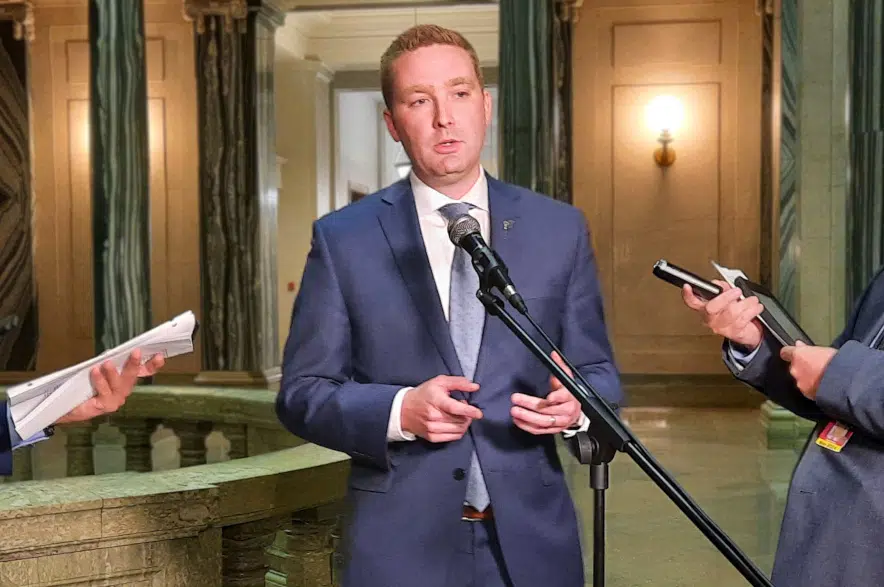Throughout the life of the provincial government’s pronoun policy, the government has been slowly talking more about what prompted it – along with the other two education policies around sex education announced at the same time.
These explanations have included an incident in Lumsden where a third-party presenter to a class left behind a deck of sexually explicit cards. The government has also said it’s heard from thousands of parents on the issues.
On the weekend, Premier Scott Moe said the discussion was prompted by a school division that created a policy which he said excluded parents. Education Minister Jeremy Cockrill subsequently said the division in question was Regina Public Schools.
Cockrill said someone brought the division’s policy, also known as an administrative procedure, to the government’s attention last year.
“When you have one school division that comes forward and is explicitly excluding parents from important discussions involving their children, that’s something … We believe that parents need to be included in those conversations,” said Cockrill.
Though the policy in question doesn’t explicitly mention parents in that section about privacy and confidentiality, Cockrill said he read it as starting from a default position of excluding parents.
“When they’re excluded, explicitly or implicitly, then that’s something that we need to correct,” said Cockrill.
When asked why he doesn’t feel a school division would know best what will work for its students and parents, Cockrill said it’s the government’s view that parents should always be kept up to speed.
“I don’t think it’s right for those types of information to be kept from a parent, especially when there’s no expression of potential safety concerns or so on. Parents should be involved,” he said.
“Education is jointly delivered by locally elected school divisions and the provincial Ministry of Education. There’s lots of things where there’s local autonomy, and there’s lots of things where we direct school divisions as the provincial government.”
Cockrill said he wasn’t the education minister at the time the policy was first brought up, so he couldn’t answer questions about what might have been done about it at the time. But he did say the government didn’t find any other divisions where this was an explicit policy.
The school division, however, said the minister had not reached out to discuss its policy.

The province’s controversial name and pronoun policies have prompted large demonstrations by people both supporting and opposing the moves. (Lara Fominoff/650 CKOM)
In a statement from a spokesperson, Regina Public Schools said it began work on its administrative procedure in 2019 after “significant consultation” with employees, parents, students and experts. The work included a number of committees of employees, the division said, “many of whom are parents.”
The school’s administrative procedure is about students and gender and sexual diversity. It talks about students having a legal right to be safe in schools and references both the Saskatchewan Human Rights Code and the Charter of Rights and Freedoms.
The statement said the procedure is also in keeping with the elected board’s policies.
The document outlines how teachers and other staff are meant to interact with 2SLGBTQIA+ students, including those who are gender diverse, and the requirement to refer to students by their chosen pronouns.
In the section about privacy and confidentiality, the division’s policy said staff members “will respect confidentiality and privacy and not disclose sexual orientation, gender identity, and/or gender expression of students unless the student has given permission or there is an impending safety concern.”
The statement from the division said it has never had a complaint or criticism about how it promotes student safety and protection in schools from any of its families.
“We always have and always will work with parents, families and caregivers to keep them informed and ensure student well-being,” read the division’s statement.
MLAs continued their marathon emergency sitting Tuesday, debating the pronouns bill. It’s expected to be passed into law before the week is out.











